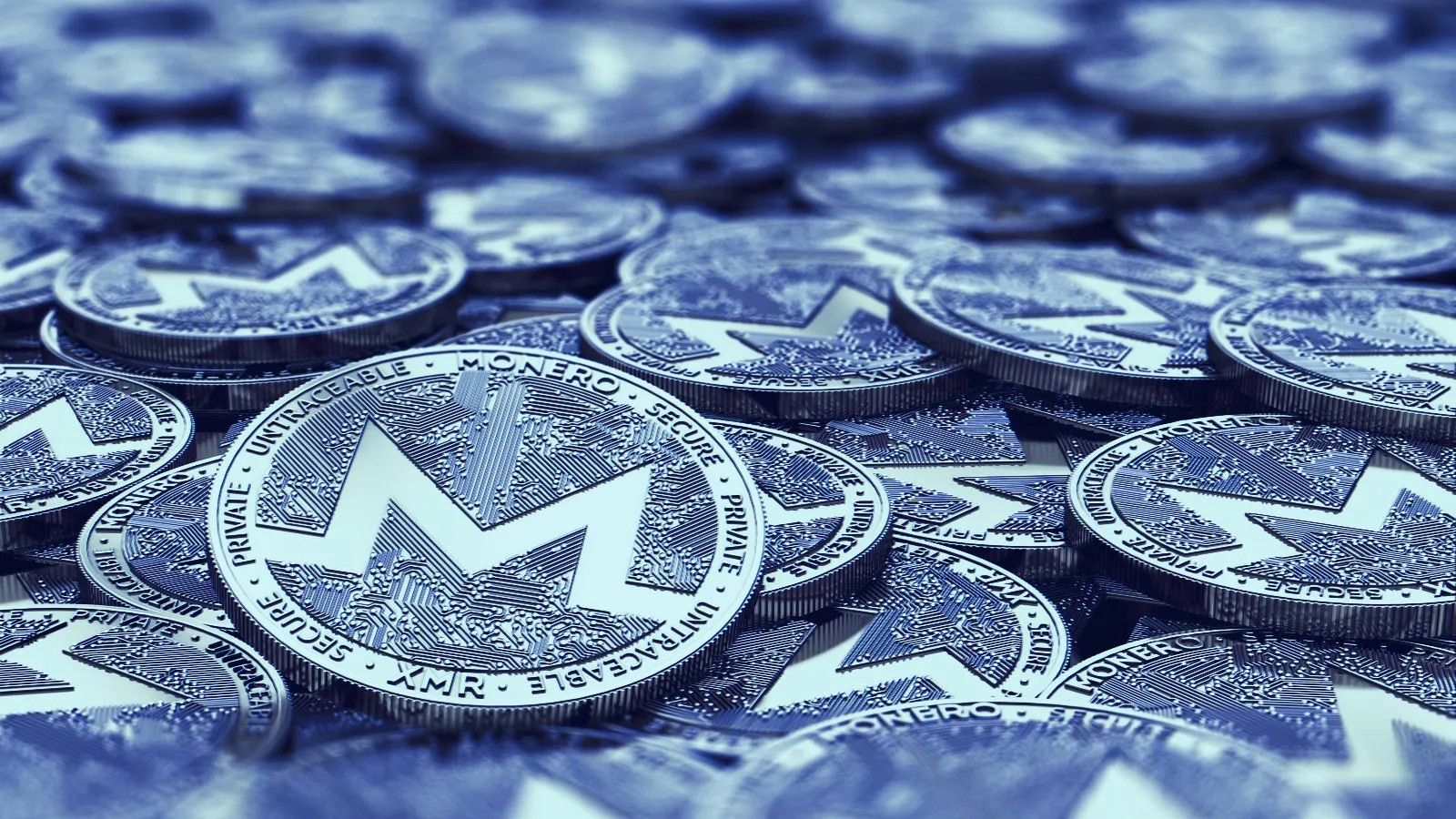We do the research, you get the alpha!
#Bittrex Customers:
The $XMR, $ZEC, and $DASH markets will be removed on Friday, January 15th at 23:00 UTC.
Details: https://t.co/8qAdjuwryJ
— Bittrex (@BittrexExchange) January 1, 2021
$68,854.00
6.77%$2,065.10
11.18%$1.60
28.73%$1.46
7.41%$630.95
7.02%$0.999992
-0.00%$89.12
13.17%$0.285955
1.07%$0.103833
12.75%$1.035
0.53%$0.310114
19.03%$51.36
6.31%$513.07
6.21%$0.999998
-0.00%$8.75
3.35%$28.68
5.04%$9.41
14.04%$339.07
5.31%$0.163952
1.54%$0.999401
0.01%$0.167213
10.80%$0.999271
-0.08%$0.00964991
2.39%$0.104878
9.21%$57.88
12.20%$256.25
4.16%$9.67
15.61%$1.00
-0.05%$1.002
15.32%$0.00000639
7.56%$0.079338
6.27%$1.33
0.08%$0.117172
6.05%$5,167.02
0.42%$4.07
22.07%$5,199.57
0.40%$1.35
-5.13%$0.622876
5.43%$1.00
0.00%$122.45
6.97%$0.00000434
10.26%$184.29
8.51%$0.714268
2.33%$0.997732
0.01%$78.45
6.14%$0.99996
0.00%$0.070656
8.27%$1.12
0.00%$0.170329
4.52%$2.25
2.20%$0.999851
-0.00%$1.21
23.49%$0.00000165
0.64%$9.42
11.89%$0.28525
14.28%$2.46
15.36%$0.999323
-0.05%$0.117096
4.01%$0.42207
11.85%$8.91
7.52%$11.00
0.01%$7.19
6.19%$0.00191601
8.55%$0.061697
8.15%$2.06
3.05%$65.92
6.06%$0.112032
13.18%$0.01667483
2.15%$0.884797
7.46%$0.03173318
8.15%$3.59
4.97%$1.002
0.15%$0.00977972
6.46%$0.093363
10.62%$1.062
28.43%$1.083
22.24%$1.51
10.24%$1.24
0.24%$0.762409
-9.46%$1.00
0.03%$114.40
0.01%$1.027
0.00%$1.11
0.40%$0.03461545
3.58%$0.00795047
11.03%$1.84
13.57%$0.081472
1.63%$0.103714
11.56%$0.03196318
11.68%$0.00000655
12.63%$1.096
0.01%$0.995884
-0.23%$0.1628
12.17%$0.999952
0.00%$0.01295962
3.36%$28.93
3.52%$0.273119
14.02%$0.278116
7.15%$0.999303
-0.05%$0.072369
9.32%$1.087
-0.17%$0.00739718
15.16%$0.709658
16.64%$1.18
0.21%$1.00
0.01%$35.63
8.45%$1.34
11.18%$0.400432
8.51%$167.48
1.02%$0.534203
3.18%$0.04433961
-3.82%$0.171563
11.59%$0.261211
16.52%$1.00
0.01%$1.09
6.40%$0.085283
9.27%$1.48
2.22%$0.03541846
4.41%$132.07
8.97%$0.999805
-0.01%$0.373253
13.85%$1.019
-0.13%$0.00000034
3.82%$16.73
8.33%$3.33
5.10%$0.00000033
0.66%$0.056331
6.78%$0.055719
9.46%$0.361991
20.17%$1.58
4.65%$0.01649653
0.47%$3.21
1.63%$0.071824
9.18%$0.329726
13.02%$0.02843035
9.52%$0.00003129
11.32%$0.00598002
7.33%$0.99706
-0.05%$0.334387
11.48%$0.995073
0.29%$0.052914
9.67%$17.41
2.11%$0.128027
8.85%$0.077006
11.03%$0.231168
12.74%$0.00278292
9.81%$1.41
-3.55%$1.60
-2.30%$6.78
11.60%$0.04578713
9.59%$0.136981
1.39%$0.00249392
0.13%$0.091143
15.61%$0.02208827
9.07%$0.106382
21.23%$1.39
12.01%$0.320056
-2.73%$1.001
0.21%$1.77
5.20%$0.22048
11.51%$0.999999
-0.00%$0.0022258
5.76%$0.986082
-0.25%$0.521327
4.12%$0.999979
-0.00%$1.30
9.78%$1.075
0.01%$22.79
0.00%$0.00003732
6.66%$0.204393
11.15%$0.099095
-1.20%$2.86
9.99%$0.00000096
0.48%$5,255.42
-1.94%$0.101708
12.68%$0.944944
56.57%$0.194295
16.35%$0.053926
4.16%$0.02059582
7.40%$1.00
0.00%$0.125383
7.98%$0.00503774
5.29%$0.00394984
11.47%$0.189813
-1.46%$0.079856
0.37%$4.22
15.01%$18.93
6.81%$1.98
14.23%$1.00
0.00%$0.780937
0.98%$0.649153
10.41%$0.055511
9.14%$0.172749
15.59%$2.19
11.52%$1.001
0.14%$2.13
1.94%$8.64
-10.69%$0.02321923
1.15%$1.81
1.07%$0.04374268
10.04%$0.01996472
-0.42%$48.01
0.02%$0.00000808
7.59%$3.37
-3.88%$1.26
0.83%$0.156112
5.95%$0.180175
13.58%$0.340413
10.02%$0.947289
-4.78%$1.001
-0.10%$0.998726
0.02%$0.422641
8.69%$1.013
-0.02%$0.306047
0.10%$0.662688
4.55%$4.72
10.33%$0.098092
11.94%$0.084074
8.02%$0.133876
8.00%$0.267645
6.39%$0.623159
5.00%$0.082493
12.77%$0.02318631
-6.70%$11.94
1.19%$0.297995
5.65%$0.131203
4.45%$1,097.76
0.01%$0.074276
-0.22%$0.375273
3.50%$0.314758
-0.59%$0.00150857
3.22%$0.224466
2.65%$0.004076
3.99%$1.90
1.74%$0.131118
0.41%$0.249857
1.08%$0.204174
8.22%$0.995337
-0.00%$2.42
7.79%$1.001
0.00%$1.038
3.57%$0.343382
4.29%$7.64
-11.87%$12.13
4.04%$1.47
2.75%$1.00
0.02%$1.064
0.19%$0.999716
-0.25%
Crypto exchange Bittrex today announced that it will delist privacy coins Monero (XMR), ZCash and Dash on Friday, January 15, at 23:00 UTC.
#Bittrex Customers:
The $XMR, $ZEC, and $DASH markets will be removed on Friday, January 15th at 23:00 UTC.
Details: https://t.co/8qAdjuwryJ
— Bittrex (@BittrexExchange) January 1, 2021
The Bermuda-registered exchange did not provide a reason for the delistings, but all three are privacy coins—a class of cryptocurrencies that offer untraceable transactions. Monero is private by default, and ZCash and Dash have an option for private transactions.
Privacy coins are under scrutiny by regulators, who consider them facilitators of illegal activity. Darknet market White House Market, for instance, only accepts Monero transactions because of its privacy features; it's easier to trace Bitcoin transactions.
Bittrex cites "evolving regulatory standards and other compliance issues" among its reasons for delisting tokens.
Earlier this week, Bittrex was one of several exchanges to delist XRP after the US Securities and Exchange Commission filed a lawsuit against XRP's creators for raising $1.3 billion in ongoing unregistered securities sales. Ripple, the company named in the lawsuits, denies the allegations.




